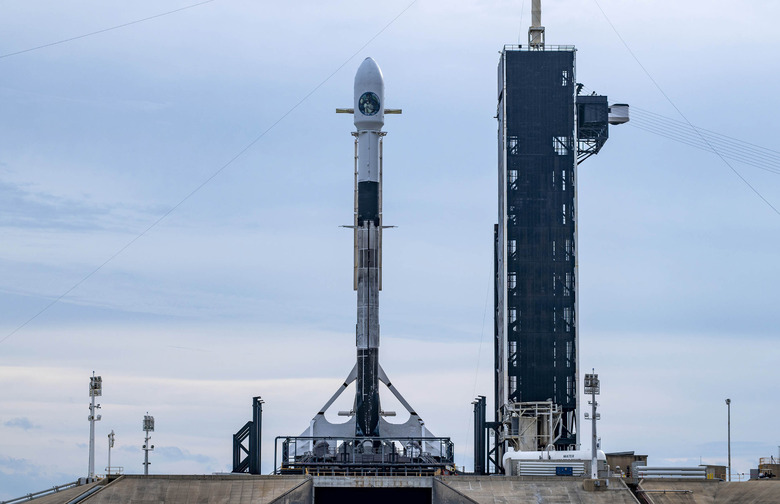SpaceX Forced To Push Back Spy Satellite Launch For A Second Time
- SpaceX was hoping to launch a spy satellite for the US government on Thursday, but that launch was delayed until Friday, and it's just been delayed again.
- The launch, which will see the delivery of a spy satellite for the United States National Reconnaissance Office, will be attempted on Saturday.
- This second delay has been linked to issues with the second stage booster of the previously-flown Falcon 9 rocket.
SpaceX has had a fantastic year, and that's really saying something when you consider how terrible 2020 has been for, well, just about everyone and everything on the planet. That being said, launching rockets into space always comes with its share of unexpected setbacks, and SpaceX is now dealing with some unfortunate delays to the last launch of its 2020 slate.
The launch, which is being conducted for the United States National Reconnaissance Office, will see the deployment of a new spy satellite into Earth orbit. The last-second addition to SpaceX's 2020 launch schedule is now getting way more attention than it would have otherwise gotten, for better or worse.
Now, the US National Reconnaissance Office (NRO) probably doesn't care all that much that people know that it is launching a satellite. After all, if it did, it probably wouldn't hire a company like Space to actually launch the hardware into space. Still, it's a bit telling that the launch kind of sprung up out of nowhere shortly before it was scheduled to take place, which is pretty common for the more hush-hush satellite launches that SpaceX agrees to take on.
In this case, the hardware being launched is a spy satellite, and it's so secretive that we don't even know its name. For the purposes of the launch, the satellite has been named NROL-108, which is just an abbreviation indication it's an NRO satellite launch (L). Its true name is not being disclosed, and it's possible that even SpaceX doesn't know the official designation of the satellite.
In any case, the issues forcing the launch to be delayed have nothing to do with the satellite itself or the semi-secretive nature of the hardware being sent into space. The initial launch on Thursday was scrubbed with just over a minute left before takeoff. It was blamed on an "auto-abort" triggered by a sensor on the Falcon 9's upper stage booster. The launch was delayed to Friday.
Friday's delay was a bit different, with SpaceX preemptively delaying the launch in order to inspect potential issues with the rocket's second stage. The initial delay was described as being due to a "slightly high" pressure indicator from the oxygen tank. That made the issue sound fairly mundane, but it's clear that SpaceX wanted to take a good, hard look at why the issue popped up before it pulls the trigger on its very last launch of the year.
The launch is now tentatively scheduled for Saturday.
